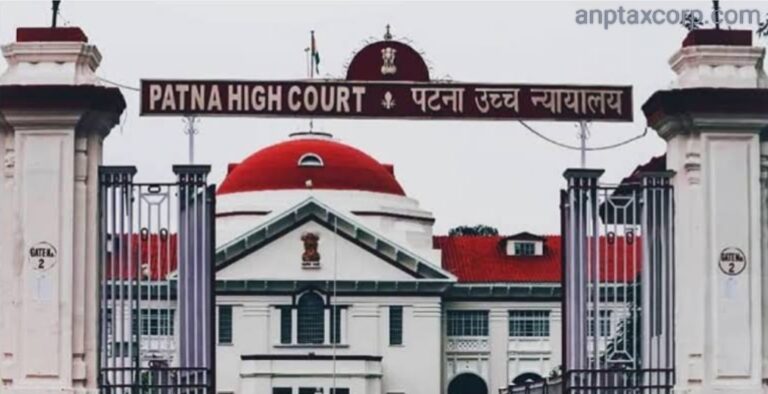In a significant ruling, the Patna High Court granted an interim stay on the enforcement of an appellate order, observing that the said order was prima facie erroneous. The Court further directed that the matter be raised before the appropriate tribunal, once it is duly constituted. This judgment reaffirms the judiciary’s role in ensuring that procedural fairness and due process are adhered to, especially in tax and quasi-judicial adjudications, where taxpayers’ rights are often affected by administrative inconsistencies.
Case Background
The petitioner in this case had approached the Patna High Court challenging an appellate order passed under the GST regime, which was allegedly passed without proper reasoning or application of mind. The core grievance was that the appellate authority, instead of independently evaluating the grounds of appeal, had mechanically upheld the order passed by the adjudicating authority, resulting in grave prejudice to the petitioner.
The petitioner contended that the appellate order suffered from non-application of mind, lacked proper reasoning, and did not address key arguments raised before the authority. Moreover, it was argued that in the absence of a functioning GST Appellate Tribunal (GSTAT), taxpayers like the petitioner were left without an effective alternative remedy.
Citation: [2025] 175 taxmann.com 1033 (Patna)
Arguments Before the Court
Counsel for the petitioner emphasized the following:
- The appellate order failed to consider the grounds raised in the memorandum of appeal;
- The authority simply reiterated the findings of the lower authority without any independent analysis;
- There was no opportunity for personal hearing, violating principles of natural justice;
- With the GST Appellate Tribunal yet to be constituted, there was no forum available for further appeal, warranting the High Court’s interference under Article 226 of the Constitution.
The State, on the other hand, contended that the remedy of appeal was statutorily provided, and the High Court should refrain from exercising writ jurisdiction, especially when the petitioner had not yet exhausted all possible remedies. However, the State did acknowledge the absence of the GST Appellate Tribunal.
High Court’s Observations and Findings
The Patna High Court, after carefully reviewing the appellate order and the submissions of both parties, held that the appellate order was prima facie unsustainable in law. Key findings include:
- Erroneous Reasoning: The High Court noted that the appellate authority did not discharge its duty of passing a reasoned and speaking order, as mandated under law. The authority merely endorsed the lower authority’s findings without critical scrutiny.
- Violation of Natural Justice: The Court emphasized the importance of giving a fair hearing and reasoned order, especially in fiscal matters where substantial financial liabilities are involved.
- Absence of Tribunal: Recognizing the non-availability of the GSTAT, the Court observed that the constitutional guarantee of access to justice necessitated judicial intervention to prevent irreparable harm to the petitioner.
- Balance of Convenience and Irreparable Injury: The Court held that the balance of convenience lay in favor of the petitioner, and that failure to grant interim relief could result in irreparable injury, including recovery proceedings.
Order and Direction
Accordingly, the Patna High Court passed the following order:
- Interim stay was granted on the operation of the impugned appellate order;
- The petitioner was granted liberty to raise the issue before the GST Appellate Tribunal, once it becomes operational;
- The matter was adjourned sine die with liberty to the parties to mention the case after the constitution of the Tribunal.
Conclusion
This ruling by the Patna High Court highlights the judiciary’s proactive approach in protecting taxpayers’ rights, especially in a scenario where institutional inadequacies—such as the non-constitution of the GST Tribunal—hamper the exercise of appellate remedies. The judgment underscores the need for speaking orders and the duty of appellate bodies to engage with the contentions of appellants meaningfully. It also puts the spotlight on the long-pending demand for the constitution of GSTATs across the country, a key structural requirement for the effective functioning of India’s indirect tax system.
